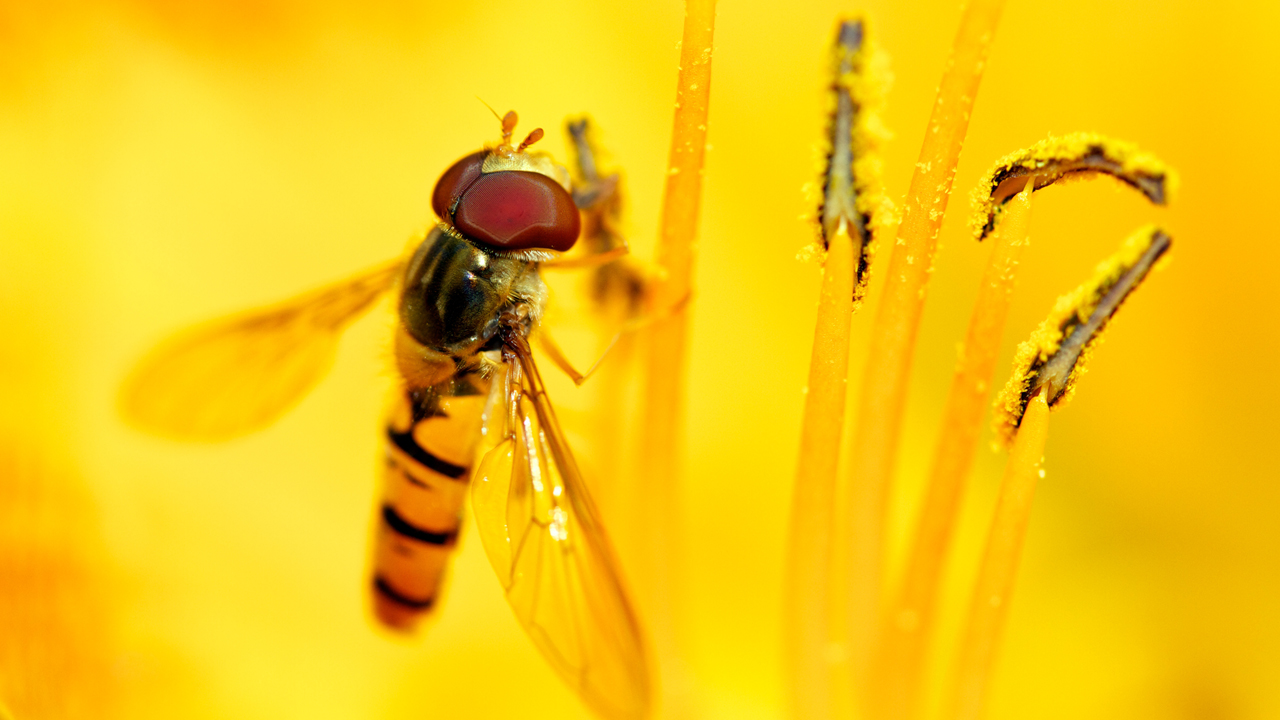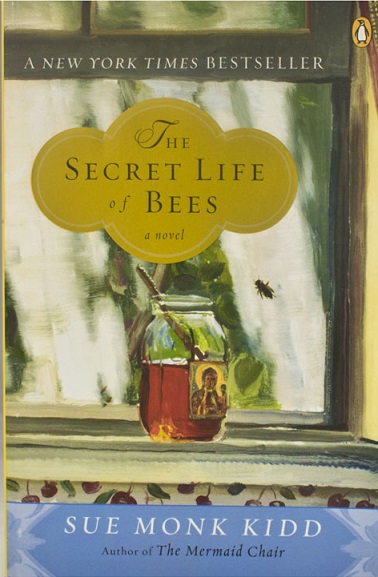Review: The Secret Life of Bees

“If you need something from somebody always give that person a way to hand it to you.”
Having read this after The Invention of Wings, one can’t help but compare the two. In terms of the writing, plot structure, and character development, Monk Kidd’s later book, also set in South Carolina, prevails as the superior novel, if not quite the most memorable. Given the twelve years that separate them, I suppose this shouldn’t be too surprising, but Kidd’s talents as a writer have clearly flourished tremendously in that span of time. This is not to say that The Secret Life of Bees isn’t well written, because it is, but it did not grab me and refuse to let go like her 2014 masterpiece.
Beyond the noticeable backward drift in the caliber of her writing, I think what put me off was the overly saccharine tenor. Don’t get me wrong — I can do schmaltzy. In fact, I love schmaltzy, but I have to be on board with the general direction of the plot and it needs to feel organic in its delivery. In several spots, the ‘just-so’ sequence of events and the demeanor and personalities of the characters come across rather forced and unnatural. August Boatwright in particular has an elysian quality about her that lends the character an other-than-human aura. The perfected wisdom and virtue imbued in every word she utters robs her of authenticity and texture. This fits with the quasi-magical realism vibe Kidd was supposedly gunning for, but it didn’t help sell the character for me.
I did enjoy the element of beekeeping woven into the narrative and thought it offered some intriguing symbolism for the larger story. Kidd clearly did a lot of legwork exploring the science of hives and honeybees prior to charting a course for this novel, and their thematic presence throughout surely explains its lasting legacy since 2002. The vivid descriptions of Lily and August tending the hives left a strong impression, and I would have welcomed a few more of these moments.
The portrayal of Black characters by a white author is another potential sticking point. I think Kidd could have done a better job conveying that Lily’s pains and struggles are different both in kind and in degree from those shared by the nonwhite characters with whom she surrounds herself over the course of the novel. Part of this disconnect can be explained by the inherent limitations of telling the story through Lily’s eyes. As a young girl living a mostly sheltered, segregated life, she shouldn’t be expected to relate to, or have the vocabulary to describe, the contrasting lived experiences of those set apart in society. Still, I felt that more could have been done to manifest the starkly different realities inhabited by the central characters.
The friends of the Boatwright sisters also felt underdeveloped, more reminiscent of stereotypes than fully fleshed out characters. I wanted to hear about their personal struggles and racial tribulations, anything beyond what food they brought over and what type of hats they wore. If there’s any aspect of the book I felt unnecessarily watered down the racial friction of living in the deep south circa the early 1960s, it’s this one. The titular role of Black women as nurturing mother figures to a coming-of-age white girl seems passé and even insulting today, though I did appreciate those fleeting moments when Lily registers the scale of the racially charged landscape native to the era. I’ve yet to personally resolve the ethical status of white authors depicting Black voices, but I understand the perspective of critics who take a harsher stance against Kidd’s characterizations here.
Closing Thoughts
I don’t think the book necessarily deserves a lower score simply because it appeared earlier in Kidd’s career, or because direct comparisons with her 2014 standard-bearer leave much to be desired. As a work of literary fiction, it’s average — neither great nor terrible. The ambient backdrop of beekeeping elevates the narrative in original ways, but the goopy theatrics and unnatural characters weigh it back down. It’s possible this book just wasn’t for me and that others will derive greater value in accordance with their own personal experiences and the degree to which they connect with those of the characters. But if it’s a recommendation you’re after, my advice would be to skip this one and pick up The Invention of Wings for its better crafted story, its more historically grounded setting, its more enlivening characters, and its more eloquent prose, all of which combine to make it the irresistible page-turner I hoped this one would be.
Note: This review is mirrored over at Goodreads and at Amazon.
Feature image: Syrphid’s Feast by Niels Strating



Comments